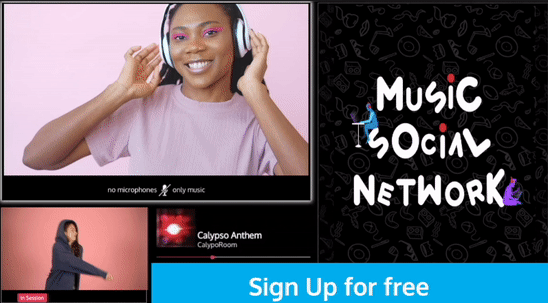How to manage artists: you are crucial for their music career
The music industry can be a difficult place to navigate. Artists are required to manage their own careers and finances while also trying to navigate the many pitfalls of the business.
However, there are ways that you can help your favorite musician succeed in the music world if you know what to do. In this article, we will discuss some tips on how you can help your favorite band or artist manage their career and become successful musicians!
Create a rapport
It is important to establish a rapport with your artists. You need to talk to them about their interests, not just music and the industry but also their family and where they went to school or college, for example.
Do they like sports? Do they have pets? These are all things you can learn from talking with them on a personal level that will help build trust between you as well as help create an environment of mutual respect in which both parties feel comfortable sharing ideas and suggestions.

Offer emotional assistance
As a manager, you’ll likely be on the receiving end of a lot of emotional outpouring. It’s important to be a good listener and support your artist through this. You should be ready to offer advice when they ask for it, or just listen if they don't.
Be understanding if an artist feels like they are unable and unwilling to talk about their problems with you; sometimes people need time alone to deal with these things.
And finally, if the emotion extends beyond what you can handle as an employee/manager relationship, consider getting outside help from someone who specializes in dealing specifically with these issues (a therapist).
Boost development
One of your main responsibilities would be helping your artists flourish and grow. In order to keep them current and interesting, you can suggest them to try out new sounds or follow trends.
You should look for opportunities for your clients to collaborate with well-known producers or musicians. By speaking with other business experts over the phone, email, and in person, you can create a network around your artist's brand that, in the long run, will strengthen the music you represent and build for the potential and future of your consumers.

Goal-setting and achievement
Once you've figured out what you want to achieve, it's time to set goals. Goals are important because they help you know where to focus your energy and resources. For example, if your goal is for your band to perform at a major music festival during the summer, then it might make sense for you to spend more time practicing than writing new songs at first.
Goal setting is also a way of ensuring that everyone on the team is working toward the same goal or set of goals. This makes it easier for everyone on the team to communicate effectively with each other and helps keep morale high when one person isn't pulling his or her weight as much as others may be doing theirs.
After setting these goals together as a group (or individually), make sure they're all achievable by keeping them realistic while still being challenging enough that they'll require effort on behalf of each team member involved with achieving them.

Plan the appropriate concerts
When selecting an artist and planning a tour, you need to consider several factors. The first is the music of your artist. How will it be perceived by the general public? What type of audience does he attract?
For example, if you have a punk band and want to get it on tour in Germany or France, this may not be as successful as if you were trying to get them into Hong Kong or South Korea, where people like punk music more than they do western in Europe.
If a band has a large following, such as Metallica, and they want to go on tour, then booking large venues is possible because they are guaranteed to sell out those shows. However, if a new band comes along with no experience but good songs, then booking smaller venues may be better because, even though there might only be 100 people at each show instead of 10 000+, at least all those who come will hear about how great this new group is before anyone else!
Transportation
Being prepared for a tour is a process that begins with finding a transportation company that will provide you with a tour bus and driver. While it may seem like an unnecessary expense, taking a tour bus can save time on the road, allowing everyone in your group to rest at night instead of waiting until they reach their destination.

Find an experienced tour manager who can ensure everything runs smoothly during your travel—everything from booking hotels, finding restaurants, coordinating local transportation needs, and keeping up with schedules should be covered by your professional team.
Finally, once you've gathered all of these details together into one place (and had them checked), make sure there's appropriate coverage for any problems that might arise during transportation services—like accidents or damage caused by weather conditions—so performers will not be held responsible for anything happening while traveling.
Offset the costs of touring
While it’s important to make money on tour, it’s also important to be mindful of the costs involved. Touring can be expensive, and in order to keep your profit margin in check, you should find ways to offset some of these expenses.
This could mean offering merchandise at each show (and online) or selling tickets in advance so that fans can buy them ahead of time and avoid paying more at the door.
You might also consider sponsorships from local businesses or organizations who will help pay for things like promotional materials or transportation costs while they get exposure from being associated with you and your music.
Make advantageous agreements during negotiations
You, as a music artist manager, need to make sure your clients get the greatest deal in addition to encouraging labels to listen to and sign the artists you represent.

You need to defend your artists by haggling over contracts and rejecting offers up until a fair compromise is reached. Because of this, a basic understanding of legal and financial language for you is a must.
Additionally, make sure that your clients receive the proper earnings from book sales and licensing opportunities, if this is the case.
Safeguard the artist
Be sure the artist is healthy. This means checking in with them on a regular basis and making sure they’re not overworked, not drinking too much, or partying too hard.
Have a good support team around the artist to help them stay focused on their work and manage fatigue when it comes to touring.
Conclusion
It’s a good idea to learn as much as possible about your artist before you sign them, so that you can make the best decision for both parties.
Once you’ve signed an artist, it is important for them to know that they can trust you with their music and career. This means being available when needed but also knowing when not to interfere with what their vision for themselves or their music may be at any given time.
In this article, we have talked about how to manage artists. Look through the many suggestions and advice we have posted in our blog section to use throughout your music career.
If you're interested in giving the music you represent a new dimension by listening to it with whomever you want, at the same time, connected by webcams, just get in touch with us by filling out this form and expressing your desire to participate with your music in CalypsoRoom.
Thanks for reading,
CalypsoRoom Team
back
Written by CalypsoRoom Editorial Team
The CalypsoRoom Editorial Team is a skilled and diverse group of writers, researchers, and industry specialists who have access to Calypso's data and information in order to give you broad knowledge about the music industry as well as helpful advice to help you manage your music and dancing career.
Updated January 2023
Company number: 681223
James's Walk 31, Dublin, Ireland
contact@calypsoroom.com
+353 (89) 435 8928





